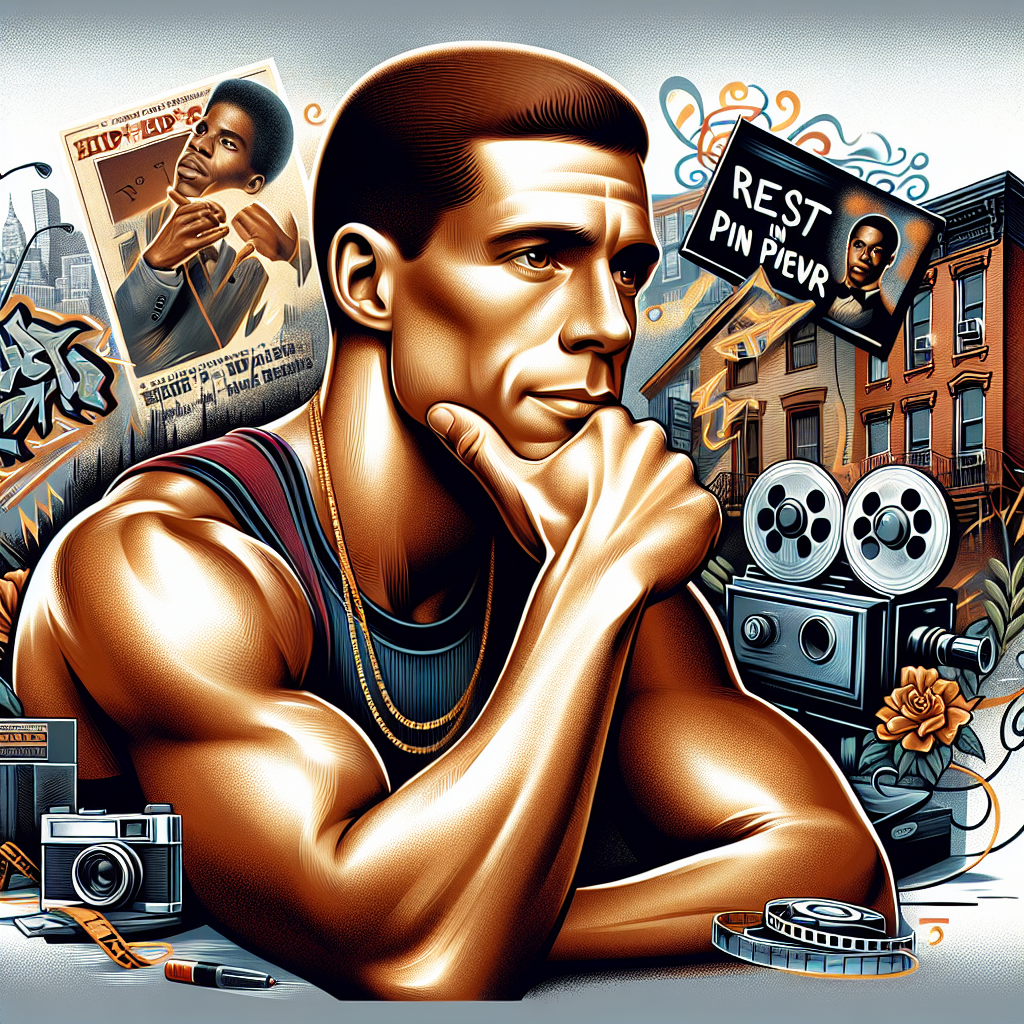Brace yourselves, culture shifters—because today, we mourn a revolutionary architect of rhythm and rebellion. The cultural cosmos has dimmed significantly with the passing of the multitalented Sacha Jenkins, a veritable titan in the temple of hip-hop, who died at 53. But let’s be clear—this isn’t just the loss of a filmmaker or a writer. This is the curtain call for one of the last true storytellers of the streets, a man who didn’t just document culture—he detonated it.
Sacha Jenkins wasn’t merely a director. He was a detonator of truth wrapped in a hoodie of historical context. Long before streaming platforms commodified subculture into catchy thumbnails, Jenkins was down in the trenches chronicling the raw frequencies thumping through the boroughs of New York. A co-founder of the influential and impossibly cool Ego Trip magazine—a Bible for those who didn’t fit neatly into MTV’s polished playlist—Jenkins redefined what it meant to narrate Black and Brown America’s blueprint of creativity, rebellion, and unapologetic swagger.
Let’s talk Ego Trip for a second. That wasn’t a brand—it was a broadcast from the underground. Ego Trip didn’t ask for permission; it kicked down the door and threw a spray-painted peace sign at the gatekeepers of media monoculture. It was Jenkins’ way of saying, “This is us, unfiltered, unbought, and unlimited.”
But Jenkins didn’t stop at paper and ink. The man picked up a camera and turned it into a hammer, smashing narratives that pigeonholed hip-hop into stereotypes. Through documentaries like the chaotic brilliance of Bitchin’: The Sound and Fury of Rick James and the poetic, panoramic mind bomb that was Wu-Tang Clan: Of Mics and Men, Jenkins elevated the genre from a sound to a saga. His films weren’t documentaries; they were cultural murals. He painted legacy with a lens soaked in truth.
Rick James? Jenkins didn’t just tell his story—he caressed, challenged, and celebrated the complexity of an artist who was equal parts funk prophet and unapologetic hedonist. And Wu-Tang? Jenkins didn’t reduce them to slogans and sneakers. No. He etched their saga into the Mount Rushmore of American storytelling. He gave them mythos. He made you feel the Shaolin in your soul.
But herein lies the twist—Sacha wasn’t chasing the spotlight; he was mobilizing it. He didn’t crave glitz. He craved impact. He understood what too many skim: that hip-hop isn’t just music—it’s modern mythology. Through his pen, his lens, and his unapologetic presence, Jenkins helped redefine the very DNA of cultural journalism. He gave voice to the voiceless, vision to the unseen, and swagger to the silenced.
And now? That booming bass of his perspective has gone quiet. But his legacy? Oh, it’s louder than ever.
That legacy pulses through every indie magazine fighting for truth over trend. It lives in every kid with a Canon and a dream in a barbershop-turned-film-set in Bed-Stuy. It echoes in every story told from the inside out, not the top down. Sacha Jenkins taught us that you can be your full, complicated, contradiction-filled self—and still change the world.
So what do we do now, culture warriors? We pick up where he left off. We disrupt. We dig deeper. We dare harder. We report as if truth is sacred and spectacle is merely the icing. As Sacha once said in an interview, “The culture told me who I was before I knew what I wanted to be.” That hit? That stays with me. Forever.
Rest in Power, Sacha. You didn’t just tell the culture’s story—you amplified its soul.
The cameras may stop rolling, but your reel is eternal.
– Mr. KanHey










